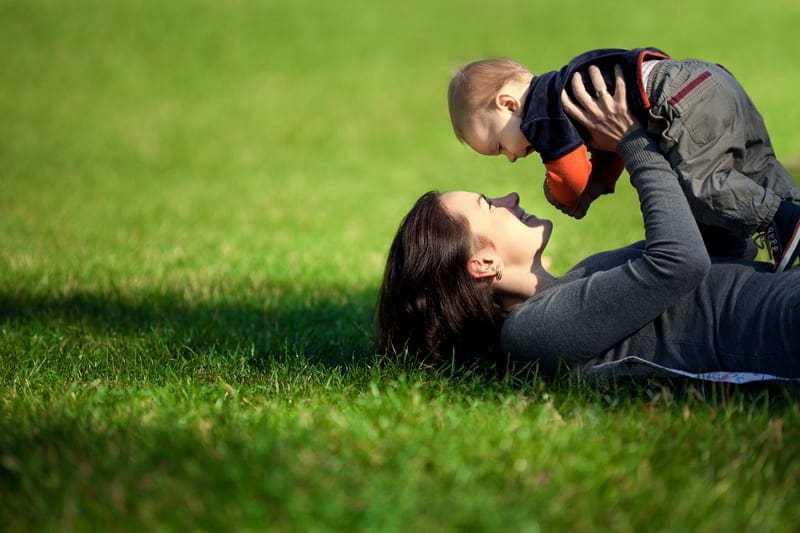One of the most common challenges new parents face is baby sleep—or lack thereof. If you’re pacing the floor at 2 a.m. with a tired, crying newborn, you’re not alone. Infant sleep is one of the most talked-about parenting topics for a reason. The good news? You can gently guide your baby toward healthy sleep habits from the very beginning, helping everyone in the family get more rest.
Understanding Baby Sleep: What’s Normal?
Babies aren’t born knowing the difference between night and day. During the first few months of life, their sleep is fragmented, and their circadian rhythm (sleep-wake cycle) is still developing. Newborns typically sleep 14 to 17 hours a day, but that sleep comes in short bursts—usually 2 to 4 hours at a time.
By around 3 to 6 months, many babies begin to consolidate sleep at night and nap more predictably during the day. But every baby is different, and milestones can vary.
Why Healthy Sleep Habits Matter
Establishing good sleep habits early sets the stage for better sleep as your baby grows. Sleep is vital for a baby’s growth, brain development, and emotional regulation. For parents, regular sleep improves mood, patience, and the ability to care for your child. It’s not selfish to want sleep—it’s necessary for the whole family’s well-being.
Tips for Building Healthy Sleep Habits
Here’s how you can help your baby develop healthy sleep routines—even in the early months:
Create a Consistent Bedtime Routine
Even a newborn can benefit from a gentle bedtime ritual. A warm bath, lullaby, feeding, and a few quiet cuddles can signal that it’s time to wind down. Keep the routine short, soothing, and consistent.
Teach Day vs. Night
During the day, open the curtains, talk, and play. At night, keep interactions quiet, lights dim, and voices soft. This helps your baby understand that nighttime is for sleeping.
Watch for Sleep Cues
Yawning, rubbing eyes, zoning out, and fussiness are signs that your baby is ready for sleep. Try putting them down before they become overtired, which can make falling asleep harder.
Lay Baby Down Drowsy but Awake
Once your baby is around 6 to 8 weeks old, start practicing putting them in their crib drowsy but not fully asleep. This teaches them how to fall asleep independently—a key skill for long-term sleep success.
Use White Noise
White noise machines or apps can mimic the soothing sounds of the womb and block out household noises that might disturb your baby’s sleep.
Keep the Sleep Environment Safe
Always place your baby on their back to sleep on a firm, flat surface. Keep the crib free of pillows, blankets, and stuffed animals. A sleep sack is a safe, cozy alternative to blankets.
Respect Nap Times
Overtired babies often struggle to sleep. Don’t skip naps in hopes of a better night’s rest—ironically, it usually backfires. A well-rested baby sleeps better overall.
Be Patient and Flexible
There will be sleep regressions, growth spurts, and off nights. That’s okay. Progress isn’t linear, but with time and consistency, your baby will develop solid sleep habits.
FAQs About Baby Sleep
When should my baby start sleeping through the night?
Most babies begin sleeping longer stretches (6–8 hours) at night around 3 to 6 months, but this can vary. Some babies need nighttime feeds for longer.
Is it okay to sleep train a baby?
Sleep training methods like “Ferber” or “gentle sleep training” can be introduced around 4–6 months. Always consult your pediatrician and choose an approach that feels right for your family.
Should I wake my baby to feed at night?
In the early weeks, yes—especially if your pediatrician recommends it for weight gain. Once your baby is gaining well and your doctor gives the green light, you can let them sleep longer.
What is a good bedtime for a baby?
Most babies do best with a bedtime between 6:30 and 8:00 p.m. Watch for your baby’s natural sleepy window and aim for consistency.
How many naps should my baby take?
Newborns: 4–6 naps/day
3–6 months: 3–4 naps/day
6–12 months: 2–3 naps/day
12–18 months: usually 1–2 naps/day
Why does my baby wake up after 30 minutes?
This is called the “catnap phase”—a common challenge around 2–4 months. Help your baby connect sleep cycles by encouraging self-soothing and consistent nap routines.
Can I use sleep aids like pacifiers?
Yes. Pacifiers can help some babies settle and even reduce the risk of SIDS. Just avoid tying them to the crib or baby’s clothes.
What if my baby’s sleep suddenly gets worse?
This may be a sleep regression, which is normal at various stages (like 4 months or 8 months). Stay consistent with your routine, and the phase will usually pass in 1–2 weeks.
—
Building healthy sleep habits doesn’t happen overnight—but with gentle guidance, consistency, and lots of love, you can help your baby become a better sleeper. And one day soon, you might just wake up and realize… you actually got a full night’s rest. Yes, it’s possible—and you’re doing a great job getting there!











